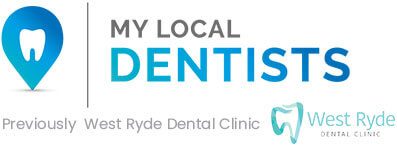Restoring Oral Health After Diagnosing Cracked Tooth Syndrome

Cracked teeth can be a source of frustration and discomfort for anyone who has experienced them.
Cracked tooth syndrome (CTS) is an umbrella term for a range of symptoms caused by a crack in the enamel or dentin of a tooth.
Typically, the crack may be visible to the naked eye, but it can also be too small to detect until further examination. What causes cracked teeth in the first place, and how to treat them? Let’s explore!
What is a cracked tooth?
Cracked tooth syndrome, or CTS, is a condition in which posterior teeth form cracks on the surface of their enamel.
Typically, these cracks cause noticeable sharp pain when biting down or consuming extremely hot or cold foods and beverages.
Cracks can arise in teeth due to age, trauma to the mouth, large fillings, and/or grinding during sleep.
If left unattended, these cracks can lead to decay of the tooth and an increased risk of infection.
Types of a cracked tooth
Craze lines 
The most common type of cracked tooth is known as a craze line. These are tiny cracks or fractures in the enamel that may not require treatment but, if left untreated, can cause sensitivity or pain if exposed to extreme temperature changes.
Craze lines typically don’t extend into the dentin layer, so they don’t necessarily require a dental procedure for repair.
In some cases, dentists may opt for sealants or bonding materials to prevent further damage from occurring.
Cracked tooth syndrome
If you have an existing filling or crown that becomes loose over time, it could mean that you have cracked tooth syndrome (CTS).
This occurs when there is an incomplete fracture that extends from the chewing surface of your vital posterior tooth down towards its root.
CTS causes extreme pain while eating and drinking because it creates pressure on the nerve endings in your mouth.
Treatment typically involves using crowns and fillings to restore the structure of your damaged tooth and reduce any further risk of damage.
Vertical root fractures
A vertical root fracture (VRF) occurs when a crack develops inside the root portion of your tooth instead of its crown portion.
VRFs can be difficult to spot since they aren’t visible on X-rays until they reach an advanced stage.
Over time, this type of tooth fracture can cause inflammation around the gumline and eventually lead to infection or abscesses if left untreated.
Treatments vary depending on severity; minor lesions may only require antibiotics, while more severe cases may necessitate extraction or root canal treatment.
Fractured cusps
A fractured cusp is a sign of brokenness in the chewing surface of your tooth.
It usually takes place in teeth with bigger dental fillings, and although it rarely influences the pulp (the nerves, blood vessels, and connective tissue), you may still be able to feel temperature sensitivity or no pain at all.
When a fractured cusp is found, an endodontic treatment like a root canal may be prescribed if the pulp has been exposed.
Nonetheless, it’s likely that only a filling or crown will suffice, thus enabling you to keep your tooth! In general, teeth with fractures have a good prognosis since they can easily be restored and saved.
Split tooth syndrome
A deep fissure spreads from the surface of your tooth, ripping it in two and extending beneath your gum line.
Causes of cracked teeth
One of the primary causes of cracked teeth is biting down on hard objects like ice cubes or hard candy.
The sudden pressure can cause stress fractures in your teeth that can eventually lead to cracks if left untreated.
 Biting your nails, grinding your teeth, and chewing on pens or pencils can also contribute to the development of cracked teeth.
Biting your nails, grinding your teeth, and chewing on pens or pencils can also contribute to the development of cracked teeth.
Another major cause of cracked teeth is ageing. As we age, our enamel—the protective outer layer of our teeth—becomes thinner and more brittle, making it easier for our teeth to crack under pressure or from force applied during activities like eating or brushing your teeth.
In addition, certain medical conditions, such as diabetes, can affect the strength of your tooth enamel and increase your risk of cracking.
Finally, cavities are another major risk factor for developing cracked teeth. When cavities weaken the structure of a tooth, it becomes more prone to cracking when subjected to significant pressure or force.
Symptoms of cracked tooth syndrome
One of the most common symptoms of cracked teeth syndrome is sensitivity to extreme temperatures—hot or cold food or drinks can cause sharp pain in your mouth that lasts for several seconds after contact with the food has been broken.
Other symptoms include persistent pain in your mouth while eating and chewing, swollen gums around the affected area, and discolouration of the teeth due to trauma.
In some cases, a crack in your tooth may be visible if the damage is severe enough.
Cracked tooth diagnosis
Your dentist will first perform a visual examination and then take X-rays to get a better look at what’s going on inside your mouth.
If they suspect that you have a crack in one of your teeth, they may also use special dye tests to get an even closer look at the affected area.
In some cases, they may also recommend an endodontic evaluation in order to determine if the nerve is involved in the crack or if it has caused any other damage inside the tooth itself.
Cracked tooth treatments
Let’s take a look at five common treatments for a cracked tooth.
Fillings
Fillings are commonly used to treat minor cracks in teeth. During this procedure, the dentist will remove any debris from the crack and fill it with an appropriate material, such as composite resin or porcelain.
This will both protect the tooth from further damage and also prevent bacteria from entering it.
Crowns
Crowns are another option for treating more severe cracks in teeth.
The crown is placed over the entire top part of the tooth like a cap to provide protection and strengthen its structure.
Crowns can be made from materials such as gold, porcelain, or metal alloys, depending on how much strength the patient needs in their restored tooth.
Bonding
Bonding is similar to fillings but is used for more severe cracks that need additional support.
The dentist will use special dental cement to attach an artificial piece onto the damaged area of the tooth before filling it with composite resin or porcelain for extra reinforcement if necessary.
Root canal therapy
Root canal therapy may be needed if bacteria have entered into a deeper level of the cracked tooth through its root system.
During this procedure, any infected material will be removed from the inside of the root canal before being filled with an appropriate material such as gutta-percha or epoxy resin.
Tooth extraction
In some cases, when all other treatments have failed, extraction may be necessary if there is too much damage done to a cracked tooth beyond repairable levels.
The dentist will carefully extract the entire damaged structure in order to avoid any further complications or pain experienced by their patient due to extreme structural failure or infection within their mouth caused by bacteria within a deep-level crack in their tooth structure.
Should you leave a cracked tooth untreated?
The severity of your cracked tooth will determine how serious the problem is.
In some cases, a minor crack may only cause slight discomfort and can be left alone until you can see a dentist.
However, if the crack is severe enough that it affects your ability to eat or speak normally, then more immediate action is necessary.
It is also important to note that leaving a severe crack untreated can lead to more significant damage in the future.
For example, cracks can widen over time and could even lead to infection or abscesses in extreme cases. In addition, bacteria can get trapped in these crevices and cause further decay.
Therefore, if you have any doubts about your cracked tooth or think that it may be more than just a minor issue, then it is best to seek professional advice from your dentist as soon as possible.
Your dentist will recommend the right treatment plan for you, depending on the severity of the crack and its location in your mouth.
Treatments may include filling in cavities with composite material or other restorative options such as crowns or bridges.
Complications
1. Pain
If you have a cracked tooth, it is likely that you are already feeling some level of discomfort or pain in the affected area.
The intensity and location of the pain can vary depending on how far down the crack goes and whether or not there has been any harm done to the inside nerve tissue
2. Infection
If the crack goes deep enough, bacteria can enter through the enamel and into the dentin layer, causing infection.
This infection can spread to other teeth and even to other parts of your body if not treated promptly.
Signs that an infection might have set in include fever, swelling, redness, pain when biting down on something, or an unpleasant taste in your mouth.
3. Damage to nerve tissue
Depending on how deep and wide the crack is, there is a chance that nerve tissue may be damaged by it.
This means that even after treatment for a cracked tooth, you may still experience sensitivity or pain when consuming something hot or cold.
In some instances, root canal therapy may be necessary in order to repair any damage done to nerve tissue by a cracked tooth.
4. Jaw damage
A cracked tooth can lead to jaw joint dysfunction if left untreated for too long because your jaw muscles will work harder than they should in order to try and adjust for the misalignment caused by the cracked tooth.
This can cause chronic headaches and neck pain over time as well as difficulty opening your mouth properly due to tension in your jaw joints from overcompensating for the misalignment caused by a cracked tooth.
 5. Loss of tooth structure
5. Loss of tooth structure
As stated earlier, if left untreated for too long, a cracked tooth may lead to further loss of structure due to decay or breakage from grinding teeth at night (bruxism).
This will eventually lead to more complex treatments, such as crowns being necessary if nothing is done about it early on in order to save what’s left of your natural enamel/dentin layers within your tooth structure itself before it becomes too badly damaged or decayed beyond repairable limits!
6. Difficulty eating
Depending upon where exactly your fractured area lies within its respective gum line, this could potentially make chewing/eating food uncomfortable due to pressure being placed on those weakened areas while consuming certain types/textures of food items (i.e., crunchy fruit/vegetables etc.).
Prevention
1) Limit your consumption of hard foods
Our teeth are designed to last a lifetime, but that doesn’t mean they’re invincible.
Eating hard foods like candy bars and ice cubes can increase your risk of cracking or chipping a tooth.
To keep your teeth in good shape, try to limit your consumption of hard foods and opt for softer options instead.
2) Avoid chewing on non-food items
Chewing on non-food items, such as pens, pencils, and fingernails, is not only bad for your teeth—it can also increase the risk of cracking or chipping one.
If you find yourself chewing on something other than food, it may be time to break the habit before it does irreparable damage to your smile.
3) Wear a mouthguard
Wearing a mouthguard while playing sports or engaging in other activities is one of the best ways to protect your teeth from trauma and breakage.
If you don’t already have one, make sure to purchase a mouthguard that fits comfortably over your teeth and wear it any time you’re engaged in activities with the potential risk of injury.
4) Visit your dentist regularly
Visiting your dentist regularly is key when it comes to preventing cracked or chipped teeth. Your dentist will assess your teeth for any signs of damage or decay and recommend any treatments necessary to prevent further damage.
It’s also important to tell your dentist about any recent changes in lifestyle habits (such as changes in diet), as these could potentially affect the health of your teeth down the line.
5) Practise good oral hygiene habits
Along with visiting the dentist regularly, practising good oral hygiene habits like brushing twice daily and flossing once daily is essential for keeping your teeth healthy and strong enough to resist cracking or chipping.
Additionally, using an antibacterial mouthwash after brushing can help reduce plaque buildup and improve overall dental hygiene.
Get your cracked tooth treated fast and effectively at My Local Dentists West Ryde!
At My Local Dentists West Ryde, We strive to provide our patients with quality care and the most up-to-date treatments for their specific situations.
Our team of skilled and experienced dentists are dedicated to reducing your pain and creating an environment free of panic or worry so you know you’ll be in good hands as soon as you step through our door.
We work hard to ensure all cracked teeth will be repaired in a timely manner, offering treatments from fillings to root canals and crowns. Allow us to help alleviate your pain and put a smile back on your face once again.
Contact us at (02) 9809 7000 to book your consultation.
Note: Any surgical or invasive procedure carries risks. Before proceeding, you should seek a second opinion from an appropriately qualified health practitioner.
References
Fractured Tooth (Cracked Tooth)
https://my.clevelandclinic.org/health/diseases/21628-fractured-tooth-cracked-tooth
Cracked Tooth
https://www.healthline.com/health/cracked-tooth
